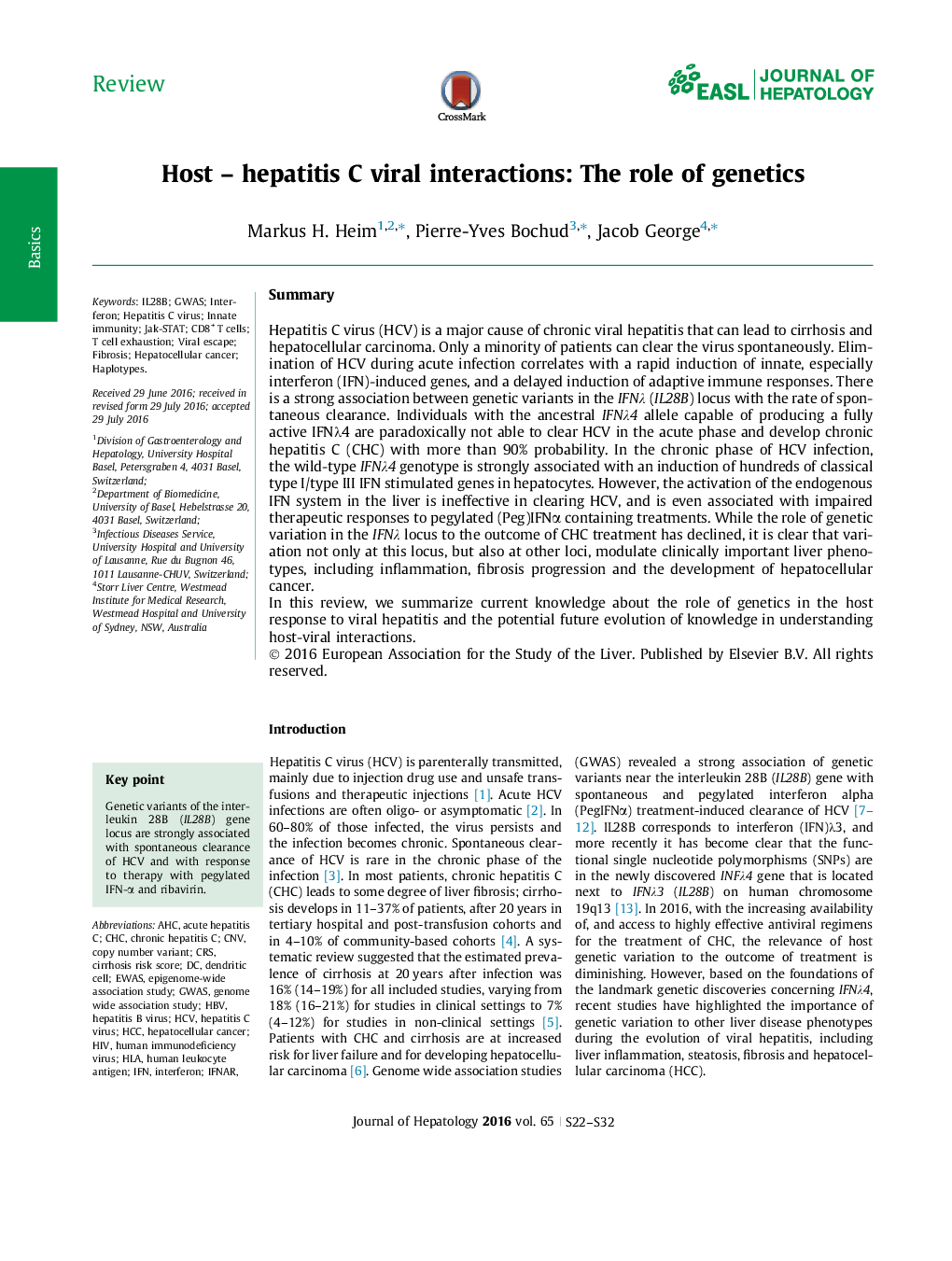| Article ID | Journal | Published Year | Pages | File Type |
|---|---|---|---|---|
| 3313605 | Journal of Hepatology | 2016 | 11 Pages |
SummaryHepatitis C virus (HCV) is a major cause of chronic viral hepatitis that can lead to cirrhosis and hepatocellular carcinoma. Only a minority of patients can clear the virus spontaneously. Elimination of HCV during acute infection correlates with a rapid induction of innate, especially interferon (IFN)-induced genes, and a delayed induction of adaptive immune responses. There is a strong association between genetic variants in the IFNλ (IL28B) locus with the rate of spontaneous clearance. Individuals with the ancestral IFNλ4 allele capable of producing a fully active IFNλ4 are paradoxically not able to clear HCV in the acute phase and develop chronic hepatitis C (CHC) with more than 90% probability. In the chronic phase of HCV infection, the wild-type IFNλ4 genotype is strongly associated with an induction of hundreds of classical type I/type III IFN stimulated genes in hepatocytes. However, the activation of the endogenous IFN system in the liver is ineffective in clearing HCV, and is even associated with impaired therapeutic responses to pegylated (Peg)IFNα containing treatments. While the role of genetic variation in the IFNλ locus to the outcome of CHC treatment has declined, it is clear that variation not only at this locus, but also at other loci, modulate clinically important liver phenotypes, including inflammation, fibrosis progression and the development of hepatocellular cancer.In this review, we summarize current knowledge about the role of genetics in the host response to viral hepatitis and the potential future evolution of knowledge in understanding host-viral interactions.
